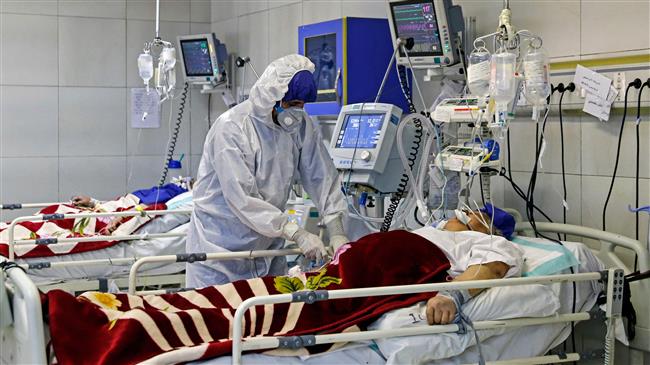Alwaght- A group with close ties to Donald Trump is pressuring pharmaceutical companies not to sell drugs to Tehran despite American President’s claim this week that the US was ready to aid Iran with the coronavirus outbreak.
According online US news publication The Intercept, pro-Israeli United Against Nuclear Iran (UANI) is urging major pharmaceutical companies to “end their Iran business”.
The targeted companies include Bayer, Merck, Pfizer, Genzyme, AirSep, Medrad, Becton, Dickinson & Company, Eli Lilly, and Abbott Laboratories, it said.
UANI's efforts are particularly notable in light of the group’s close ties to the Trump administration, Saudi Arabia, the UAE, and Israel, and the Republican party’s biggest donors, Sheldon and Miriam Adelson.
Senior UANI adviser John Bolton worked for UANI both before and after his stint in the Trump administration as national security adviser.
UANI’s umbrella group, Counter Extremism Project United Inc, paid Bolton $240,000 between 2016 and 2017, The Intercept said.
The pressure group is carrying on with its campaign targeting medical trade with Iran amid a massive outbreak of the novel coronavirus in the country, whose access to medicine has already been hampered by the cruel U.S. sanctions.
“US sanctions have had a long-term impact on Iran’s ability to freely import medical supplies,” said Tyler Cullis, an attorney specializing in sanctions law at Ferrari & Associates.
Iranian Health Ministry spokesman, Kianoush Jahanpour on Friday confirmed 1,234 new cases of coronavirus infection, including 17 deaths in 24 hours.
The record-breaking increase in number of new infections raises the total number of confirmed cases to 4,747 and the overall death toll to 124, Jahanpour said.
So far, 913 have recovered from the disease and been discharged from hospital, he added.
Last Thursday, the United States said it had issued a license to permit some humanitarian trade transactions to be conducted with Iran's sanctioned central bank.
The US Department of the Treasury announced it would allow its companies to send food, medicine and other critical supplies to Iran through the Swiss Humanitarian Trade Agreement External link (SHTA).
Iran's Foreign Ministry spokesman Abbas Mousavi touched on a Swiss channel announced in December to bring food and medicine to Iran, saying the US government has even been stonewalling efforts to have it up and running.
President Trump said on Saturday the US was willing to aid Iran with its coronavirus outbreak, adding that "all they have to do is ask," just after he authorized the expansion of travel restrictions against Iran.
Iranian President Hassan Rouhani said the offer was insincere, adding Washington had better first lift its sanctions on medical supplies to Iran if it really sought to help the Islamic Republic.
Although food, medicine and other humanitarian supplies are exempt from the sanctions imposed by Washington, the US measures targeting everything from oil sales to shipping and financial activities have deterred several foreign banks from doing business with Iran, including humanitarian deals.
In 2018, Trump withdrew Washington from a 2015 international deal, known as the Joint Comprehensive Plan of Action (JCPOA), reached between Iran and the 5+1 Group - the US, the UK, Russia, China, France, and Germany.
The US then reinstated its sanctions against the Islamic Republic in defiance of the agreement’s multilateral nature and the fact that it had been ratified by the United Nations Security Council.
Washington then began forcing other parties to toe its sanctions line. The three European signatories to the JCPOA -- the UK, France and Germany -- have stopped their transactions with the Islamic Republic under the US pressure.
US Secretary of State Mike Pompeo on Thursday urged the UN Security Council to renew the arms embargo on Iran before it expires in October as per a UN Security Council resolution that endorsed the 2015 nuclear deal.
"This is consistent with the JCPOA. This is the fundamental failing. Iran will be free to buy conventional weapons systems from any willing seller,” Pompeo told State Department reporters.



























